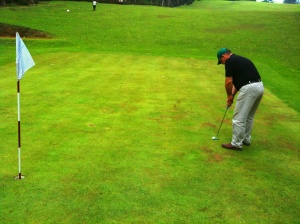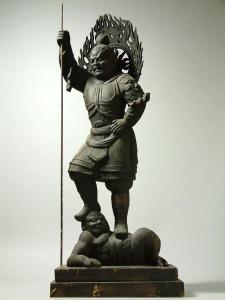Danger is a lack of Awareness
From Shiro Kuma's Weblog by kumablog
Be aware of danger!
In the process of training techniques in the dôjô, you should always be aware of the environment i.e. the room or your friends training, as waving the bô in the air around you can be dangerous.
Outside of the dôjô this awareness can save your life. The technique is nothing if you cannot stay alive. Do not trust the densho or the waza because they never answer the particular situation in which you are caught. The waza have to be trained extensively in the dôjô so that their benefits are acquired by the body. Once acquired by the body, the brain will not think these waza again and adapt your moves according to the situation. Permanent adaptation is what makes you stay out of danger.
Ninpô is about protecting life, yours and the ones around you (friends or foes). Do not count on yourself only but trust your partners to help you stay alive. Danger is not predictable by nature but nature is not dangerous as long as you are aware of the “general picture” in which you evolve. This is why teamwork is so important.
The basics are done for yourself only but the interconnexion with the movements of your partners reveals a more powerful set of possibilities. Alone you are nothing, in a team you exist. The team increases your awareness of danger.
In order to stay alive, Bujinkan practitioners should develop teamwork abilities, and to do so train the basics more intensely.
 …
…

 …
…
 …
…


 …
…
 …
…